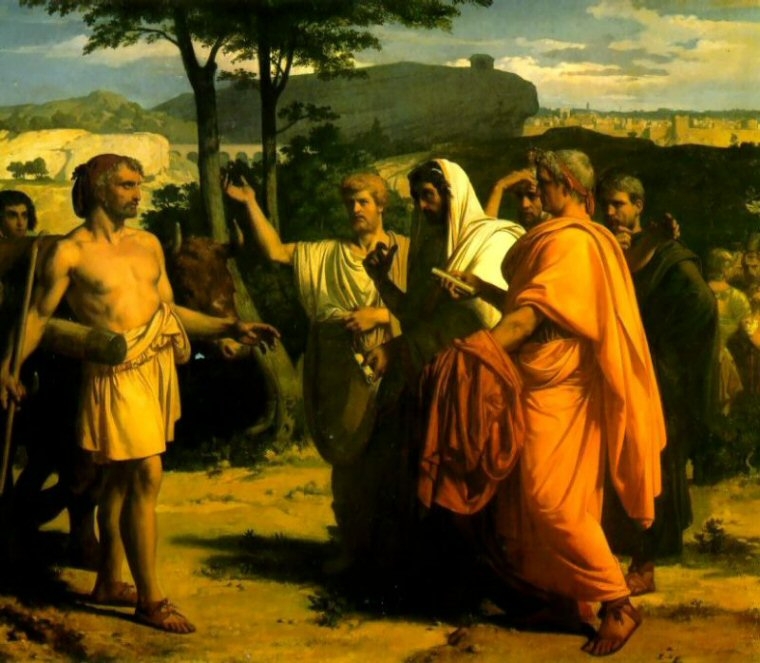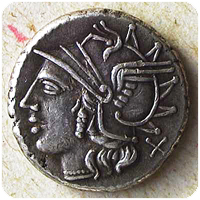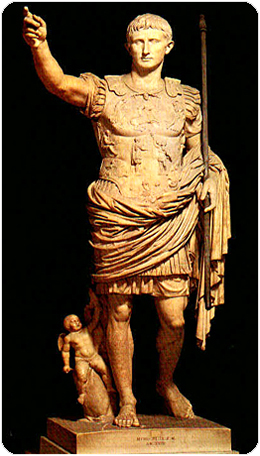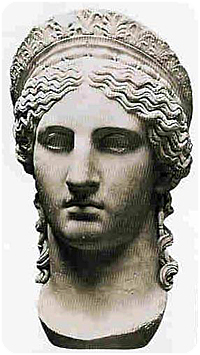The taking of security to ensure the appearance of the accused at trial is far older than one might expect. It dates back at least to the early days of ancient Rome. There is a record of bail being taken as far back as about 461 BC.
Just how far back this is, is made clear when it is put in the context of major events of Roman history. It occurred roughly 300 years after the traditional date for the founding of the city of Rome (753 BC), 50 years after the monarch Tarquin the Proud was overthrown to found the Roman Republic and about 250 years before Hannibal and his elephants invaded Italy in the second Punic war.
 In the context of the Greeks, this precedent occurs about 50 years after Cleisthenes’ reforms led to the establishment of democracy in Athens (510-508 BC), about 20 years after the failure of the Persians’ last attempt to conquer Greece (Thermopylae, Salamis, Plataea — 480-479 BC), before the construction of the Parthenon (447 – 432 BC) and about 130 years before Alexander the Great burst forth to overrun the Persian empire.
In the context of the Greeks, this precedent occurs about 50 years after Cleisthenes’ reforms led to the establishment of democracy in Athens (510-508 BC), about 20 years after the failure of the Persians’ last attempt to conquer Greece (Thermopylae, Salamis, Plataea — 480-479 BC), before the construction of the Parthenon (447 – 432 BC) and about 130 years before Alexander the Great burst forth to overrun the Persian empire.
For those interested in Biblical history, this precedent occurred less than 1 generation after Esther saved the Jews of the Persian empire from Haman’s proposed pogrom, at about the same time as Ezra’s visit to Jerusalem in 458 BC and about 16 years before Nehemiah rebuilt the walls of Jerusalem.
This brief review of the setting of this precedent in the context of Rome and Greece suggests 2 points. First, that the practice of taking bail from an accused prior to trial is nearly as old as democracy itself. It may not precede democracy as such a procedure has little role in a tyranny. Secondly, that the procedure was known and used before the occurrence of many significant events of the ancient world that are still within the common knowledge of the modern Western world.
The evidence of bail being taken this early is in Titus Livius’ (Livy in English) book, Ab Urbe Condita (From the Founding of the City or History of Rome). Livy was one of the great Roman historians. Born at Patavium (Padua) in about 59 BC, he lived through the fall of the Republic to die 3 years after Augustus in 17 AD. His history consisted of 142 books, 35 of which survive. It is a gripping tale of the rise of Rome from its foundation through, amongst other things, the establishment of the Republic and the 3 Punic wars. In doing this, Livy addresses many matters of interest to lawyers. One of them is the following account of bail being taken from an accused.
 The early days of the Roman Republic suffered from heightened tension between the aristocracy (patricians) and commoners (plebeians). One dimension of that tension concerned the complex constitutional structure of Rome.
The early days of the Roman Republic suffered from heightened tension between the aristocracy (patricians) and commoners (plebeians). One dimension of that tension concerned the complex constitutional structure of Rome.
The highest political office of the state was that of consul. The powers of the office were immense and akin to those of a King. The restraints on that power included that there were 2 consuls and elections to the office were held annually. The consuls were patricians.
The plebeians were represented by tribunes, a less powerful office.
One tribune, Gaius Terentillus Arsa, proposed that commissioners be appointed to codify the laws limiting and defining the power of the consuls. The patricians vehemently opposed the proposal arguing that consular authority was checked by the power of the tribunes to bring a former consul to trial for misconduct during the consul’s term of office.
The political conflict led to riots. A champion of the patrician’s cause was a young nobleman, Caeso Quinctius, described by Livy as “a man of action, tall and strongly built, whose physical endowments were enhanced by a distinguished record both as a soldier and a forensic orator.”1 He led attacks that hounded the tribunes out of the Forum and scattered the “mob” “like a beaten enemy”.2
In the face of such aggression, one tribune had strength that his colleagues lacked. Aulus Verginius summoned Caeso to stand trial on a capital charge. One allegation against Caeso turned on the evidence of Marcus Volscius Fictor, a former tribune. He said that his older brother, when recovering from the plague, had come across a riotous group of aristocrats, that a quarrel developed that led to his brother being knocked down by a punch from Caeso and that, subsequently, the brother died as a direct result of the blow.
 Tribune Verginius wanted to keep Caeso in custody pending trial. The other tribunes disagreed and ordered him to appear before the Court stipulating that in the event of his non-appearance a sum of money should be pledged to the people. The amount was left to the Senate. It said that it would provide sureties, each for the sum of 3,000 asses. That was a considerable sum. The Senate left it to the tribunes to determine the number of sureties. The tribunes required 10 sureties. Verginius then admitted Caeso to bail.
Tribune Verginius wanted to keep Caeso in custody pending trial. The other tribunes disagreed and ordered him to appear before the Court stipulating that in the event of his non-appearance a sum of money should be pledged to the people. The amount was left to the Senate. It said that it would provide sureties, each for the sum of 3,000 asses. That was a considerable sum. The Senate left it to the tribunes to determine the number of sureties. The tribunes required 10 sureties. Verginius then admitted Caeso to bail.
From this one can see that the process of setting bail was addressed by officers and institutions that we would describe as political rather than legal. Trials in those days were highly political affairs. Our concepts of relevance had little application.
The case is also an early illustration of an accused skipping bail. The night after he was admitted to bail, Caseo fled Rome for Etruria [Tuscany]. That had at least 2 consequences.
First, the trial did not proceed. Caseo’s supporters argued that he had gone into exile. Notwithstanding these arguments, the strong tribune Verginius wished to try Caseo in absentia. The other tribunes did not agree. To this extent, Caseo gained from his flight.
Secondly, at least one of the sureties was compelled to pay up. Caseo’s father “had to sell everything he possessed and leave the city. He found a deserted hovel across the river, and lived there like a banished man.”3 Quite a fall for an aristocrat. Livy does not record Caseo as doing anything to remedy this position. Several years later, his father is still recorded as working on a small farm.
The tapestry of this tale is embroidered by a silken thread. Caseo’s father was none other than Lucius Quinctius Cincinnatus. The US city of Cincinatti commemorates his name. Livy portrays him as a man of substance, selflessly devoted to the service of the Republic. One indication that this was no ordinary man is that several years after suffering financial ruin, he was elected a consul.
Approximately 3 years after Caseo’s flight, charges were brought against the witness Marcus Volscius Fictor whose testimony was the foundation of the case against Caseo. He was charged with giving patently false evidence about Caseo. Two sources of evidence were relied upon as the basis for the charges. First, witnesses said that the sick brother allegedly attacked by Caseo had never appeared in public from the time that he fell ill and, after lingering for many months, died of consumption. Secondly, other witnesses said that during the relevant period Caseo had been on active service and had not gone on leave. Thus Marcus Volscius Fictor could not have witnessed the events that he claimed to have observed.
Before moving on, one might speculate that at least the second group of witnesses would have been available to Caseo to call at his trial. His flight may thus reflect his apprehension that the outcome of his trial before the people would be determined by the political climate of the day rather than the merits.
This prosecution was explosive politically. It could be seen as patrician revenge for the plebeian assault on Caseo. The tribunes delayed the prosecution for political reasons. They refused to allow it to proceed unless the patrician controlled Senate allowed debate on the proposal to codify the powers of the consuls. The Senate steadfastly refused to do this.
This impasse was not the only source of tension for the Republic. Foreign relations were creating their own pressures. Rome was attacked by one of its neighbours, the Aequians. The military situation became critical when the enemy surrounded at Algidus an army commanded by one of the 2 consuls.
To deal with the potential military disaster, the Senate decided to appoint a dictator. As the title suggests, this was an office attended with absolute powers that were not subject to appeal. A dictator could act free of restraint by the consuls or tribunes. Such appointments were made usually for a specific time or purpose.4
The Senate chose Cincinnatus for the office and its envoys found him at work on his 3 acre farm. As we have seen above, he was living in such circumstances because he had gone surety for his son, Caseo. The scene is commemorated by the oil painting by Giovanni Battista Tiepolo (1696 — 1770) that is now exhibited in the Hermitage and by the work by Alexandre Cabanel (1823 – 89) [see illustration]. Cincinnatus accepted the appointment, led a forced march by another Roman army and surrounded the Aequians who were themselves encircling the consular army. The ensuing battle led to the surrender of the Aequians.
 When Cincinnatus returned to Rome he celebrated the triumph that the Senate had granted him. The thread he wove in this tale and the story of Rome is silken for he was appointed Dictator twice and each time discharged his duties successfully and then relinquished absolute power voluntarily. For this reason, US citizens like to compare him with George Washington.
When Cincinnatus returned to Rome he celebrated the triumph that the Senate had granted him. The thread he wove in this tale and the story of Rome is silken for he was appointed Dictator twice and each time discharged his duties successfully and then relinquished absolute power voluntarily. For this reason, US citizens like to compare him with George Washington.
This is not to suggest that as Dictator he did not do things that gave personal satisfaction beyond that inherent in serving the general public interest. After saving the consular army by vanquishing the Aequians, Cincinnatus refrained from resigning immediately as Dictator. The trial of Volscius for giving false evidence about the Dictator’s son Caseo was pending. The tribunes who had blocked it were so in awe of the Dictator that they did not continue to impede the proceedings. Volscius was found guilty and sent into exile. Cincinnatus then resigned. This process did not take long — Cincinnatus was Dictator for only 15 days before he resigned! One has to be sceptical about how fair was that trial by our standards.
There is a further twist to the tale which might be expected given the conviction of the accuser Volscius. Caseo returned to Rome without his trial being resumed. So the first recorded instance of bail being granted in ancient Rome had the accused skip bail yet return without facing a trial or a conviction recorded in his absence. While this account suggests that some things used in the present are taken from the distant past, hopefully this part of the historical precedent has been left firmly in the past.
Andrew Lyons
To comment on this article in the Hearsay Forum, click here.
Endnotes
- Livy (translated by Aubrey de Sélincourt); The Early History of Rome; Penguin; p. 196
- Ibid, p. 196.
- Ibid, p. 199.2.
- It was Julius Caesar’s appointment as dictator perpetuus (dictator without term) that gave the impression that he had lost interest in restoration of the republic prompting his assassination in 44 BC.




 The early days of the Roman Republic suffered from heightened tension between the aristocracy (patricians) and commoners (plebeians). One dimension of that tension concerned the complex constitutional structure of Rome.
The early days of the Roman Republic suffered from heightened tension between the aristocracy (patricians) and commoners (plebeians). One dimension of that tension concerned the complex constitutional structure of Rome. Tribune Verginius wanted to keep Caeso in custody pending trial. The other tribunes disagreed and ordered him to appear before the Court stipulating that in the event of his non-appearance a sum of money should be pledged to the people. The amount was left to the Senate. It said that it would provide sureties, each for the sum of 3,000 asses. That was a considerable sum. The Senate left it to the tribunes to determine the number of sureties. The tribunes required 10 sureties. Verginius then admitted Caeso to bail.
Tribune Verginius wanted to keep Caeso in custody pending trial. The other tribunes disagreed and ordered him to appear before the Court stipulating that in the event of his non-appearance a sum of money should be pledged to the people. The amount was left to the Senate. It said that it would provide sureties, each for the sum of 3,000 asses. That was a considerable sum. The Senate left it to the tribunes to determine the number of sureties. The tribunes required 10 sureties. Verginius then admitted Caeso to bail. When Cincinnatus returned to Rome he celebrated the triumph that the Senate had granted him. The thread he wove in this tale and the story of Rome is silken for he was appointed Dictator twice and each time discharged his duties successfully and then relinquished absolute power voluntarily. For this reason, US citizens like to compare him with George Washington.
When Cincinnatus returned to Rome he celebrated the triumph that the Senate had granted him. The thread he wove in this tale and the story of Rome is silken for he was appointed Dictator twice and each time discharged his duties successfully and then relinquished absolute power voluntarily. For this reason, US citizens like to compare him with George Washington.